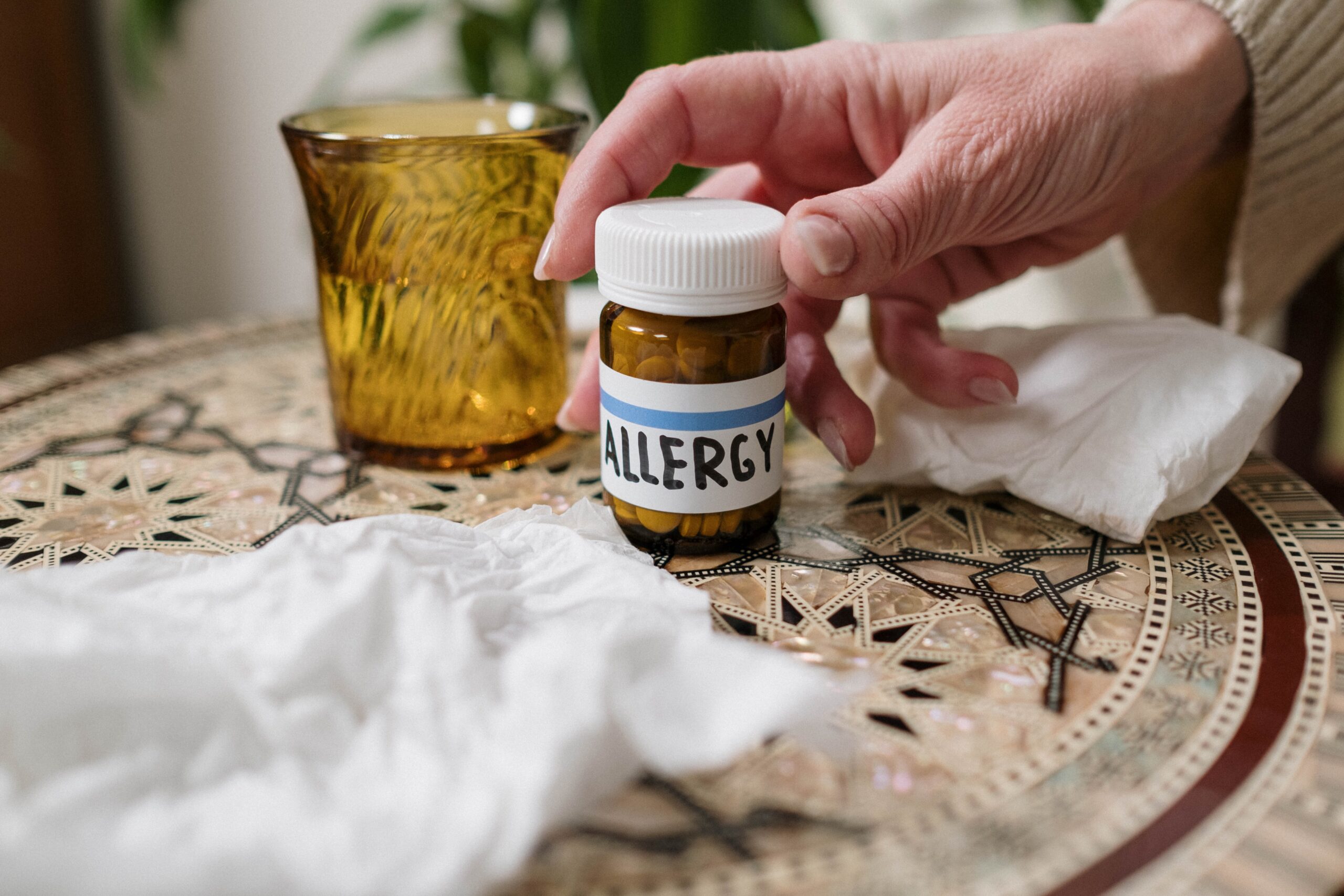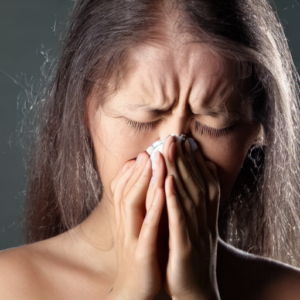Allergy: causes, treatment, seasonal exacerbations
Allergy is a pathological reaction of the immune system, in which the body perceives substances that are safe for most people as dangerous. It can be food, plant pollen, wool, dust, and more. Upon contact with the allergen, a pronounced skin, respiratory or other reaction occurs, which in some cases can be life-threatening.
To avoid unpleasant symptoms with allergies, it is important to accurately identify the irritant and select supportive therapy. This can be done at the Kutuzovsky Medical and Diagnostic Center with the help of an experienced allergist.
How does an allergic reaction occur?
Simplistically, the mechanism of allergy can be described as follows. If a person has a genetic predisposition to allergic reactions, under certain conditions, a substance is perceived by the body as an “aggressor”. There will be no immediate reaction to it. However, the next time it comes into contact with this irritant substance, the immune system will try to counteract it.
The body will secrete antibodies and launch a protective immune response – these are the unpleasant allergy symptoms that a person feels. With each new contact with the allergen, the reaction force may increase.
Allergies can occur at any time of the year, but many people experience an exacerbation regularly during the warm season – in spring and summer. During this period, plants bloom and bear fruit, it becomes dusty on the street – all this can cause an allergic reaction.
In addition, sometimes allergies acutely make themselves felt in the autumn because mold and cold can also act as allergens.
What is an allergy
Depending on the cause, there are several types of allergies. The main ones are:
- Food Allergies are caused by foods.
- Household – occurs when in contact with animals, house dust mites or mold.
- Pollen – associated with a reaction to pollen.
- Medicinal – occurs when taking medications.
- Insect – caused by insect bites (mainly wasps and bees).
Respiratory, skin, and other allergic reactions
Each type of allergy has its own set of symptoms that occur when exposed to the allergen. All these symptoms are a reason to consult an allergist at the Kutuzovsky Medical Center. There are a lot of potential allergens, and only a specialist will be able to determine what exactly the body produces an inadequate reaction to.
There are such groups of allergy symptoms, depending on their origin:
- Respiratory (respiratory): sneezing, watery discharge from the nose, nasal congestion, coughing, hoarseness, whistling in the chest, feeling short of breath, noisy breathing, difficulty inhaling and/or exhaling. This is how seasonal allergies usually manifest themselves during the flowering period of plants (its other name is hay fever) and angioedema of the larynx.
- Eye (signs of conjunctivitis:): redness of the eyes, itching in the eyes, watery eyes.
- Skin: itching, redness, and peeling of the skin, swelling of individual and large areas of the skin.
- Symptoms from the digestive tract: colic, nausea, impaired stool, and other manifestations. They are usually associated with food allergies.
- Systemic manifestations: a combination of symptoms from several body systems, such as skin and respiratory, or respiratory and cardiovascular. These manifestations are especially dangerous, so emergency medical care is required. They develop, as a rule, very quickly – up to several minutes after contact with the allergen.
- Anaphylactic shock: shortness of breath, convulsions, fainting, pressure drop, bronchospasm, and sometimes coma. These symptoms are especially dangerous, so urgent medical attention is required. They develop, as a rule, very quickly – within a few minutes after eating or contact with the allergen.
The most common allergens
The causes of allergies are not fully understood, and any, of the most unpredictable substances, can cause a reaction. However, several irritants provoke an allergic reaction most often. People with a predisposition to allergies need to be more careful with them and try to avoid contact.
Among the most common allergens:
- Cat or dog hair;
- Street and house dust;
- Mold;
- plant pollen;
- bee or wasp venom;
- Washing powder and other household chemicals;
- Latex;
- Penicillins and some other medicines;
- Dairy products;
- Eggs;
- Wheat;
- Fish;
- soy;
- Nuts;
Not always an allergen is a substance. For example, there is a cold allergy, in which the skin reacts with redness and itching to a decrease in air temperature.
Diagnosis: what tests determine the allergen
To avoid irritating substances in everyday life and to experience allergic reactions as little as possible, it is important to know the cause of the allergy. The first step in diagnosis is a conversation with a doctor, during which the specialist will collect an anamnesis and suggest several possible irritants. It is important to talk in detail about the symptoms of an allergy and the circumstances in which an allergic reaction usually occurs.
Further, in the clinic, various laboratory tests are carried out:
- Skin tests. They allow you to quickly and safely track the body’s reaction to several different allergens. For testing, samples of substances are applied to the skin – potential irritants, selected in advance. A scarifier can be used to make micro-scratches. Skin tests are safe because they use a negligible amount of each allergen. Such tests can be carried out on both an adult and a child. Allergy test results can be ready within 20 minutes after the procedure.
- Application tests. Unlike the classical skin test, in this case, the skin’s surface is not damaged. A potential allergen is applied to the skin and covered with a special bandage for a day or more, and then the reaction is evaluated. In this way, it is possible to determine the cause of atopic dermatitis and other skin reactions that occur upon tactile contact with an irritant.
- Blood test for antibodies. The laboratory measures the number of specific antibodies that are produced during allergies – specific immunoglobulins class E. These antibodies are unique for each allergen. Immunoglobulin testing is done instead of skin tests or in addition to them to clarify the results. A small amount of blood is taken from a vein into a test tube for the test.
- provocative tests. In this case, a certain amount of the allergen is injected directly into the human body, and the doctor fixes the reaction and helps to quickly stop it. This method of testing is carried out only in a hospital under the supervision of physicians. The advantage of such an analysis is accuracy because it allows you to determine 100% if there is a reaction to a specific substance. A provocative test is carried out if other diagnostic methods were not informative enough.
Additionally, some general clinical tests may be required, for which the doctor will write a referral if necessary.
How is allergy treated?
The main principle during the treatment of allergies is to avoid contact with a substance that causes an undesirable reaction. It is important, not to provoke the immune system to produce antibodies because each episode of an exacerbation of an allergy is a stress for the body and the risk of a severe reaction. Based on laboratory tests, your healthcare provider will recommend which substances to avoid.
In parallel, the allergist may prescribe:
- Taking antihistamines – constantly or only when forced into contact with allergens. Such medications significantly alleviate most of the symptoms of allergies.
- Additional medications to relieve symptoms. To reduce the manifestations of allergies, individual preparations in the form of ointments, sprays, and inhalers may be required.
- Allergen-specific immunotherapy. This is a modern method of treating allergies. The purpose of is not just to relieve the symptoms of the disease. Also to reduce the body’s susceptibility to a specific irritant. You can compare this method with preventive vaccinations. Its essence is that a dose of an allergen is introduced into the body for a long time, which gradually increases. Immunotherapy is carried out according to a certain scheme for several years and requires patience from the patient: the intensity of the allergic reaction will decrease gradually. Such treatment is prescribed in a situation where the allergen is precisely known.
#healthfitwellhub.


